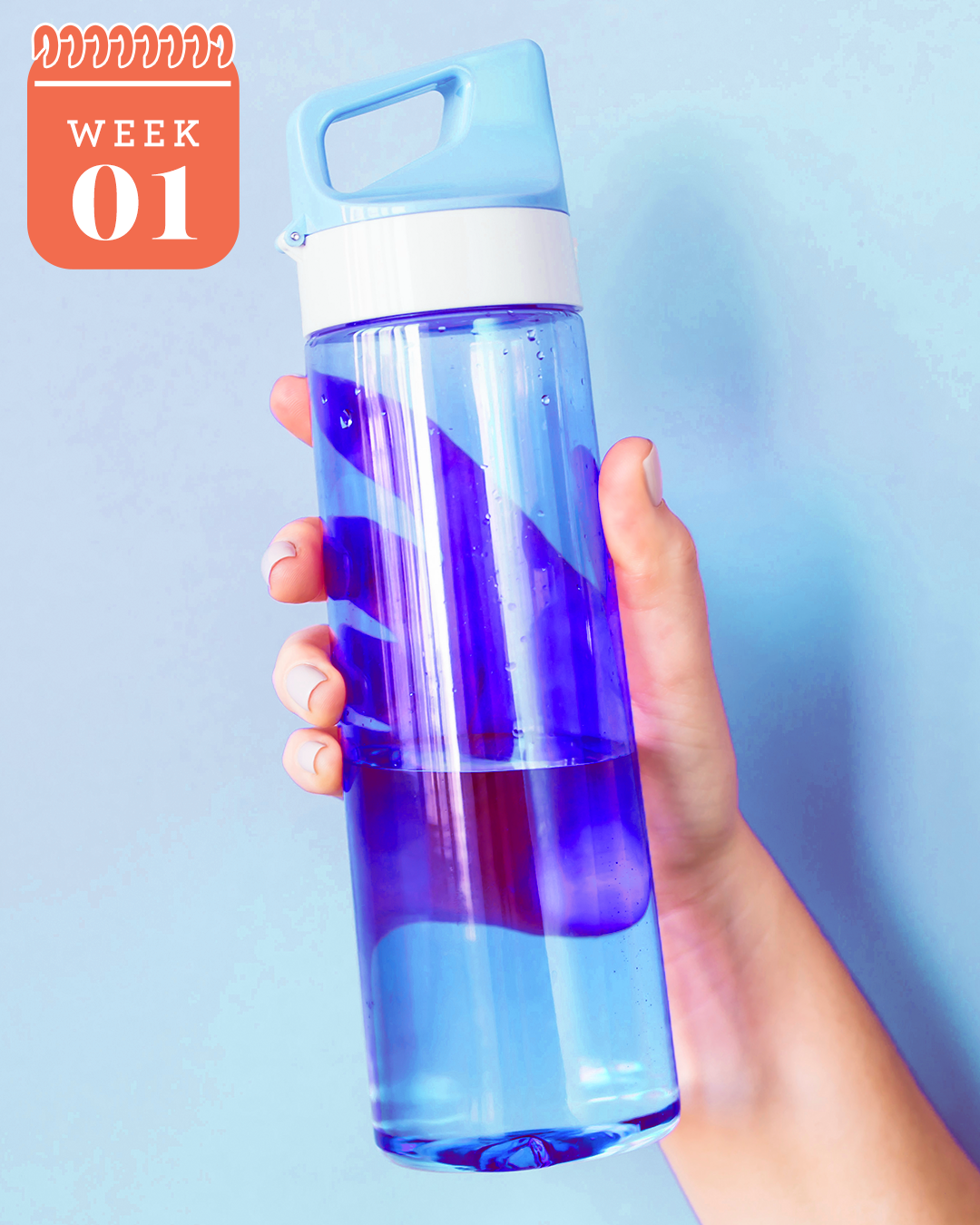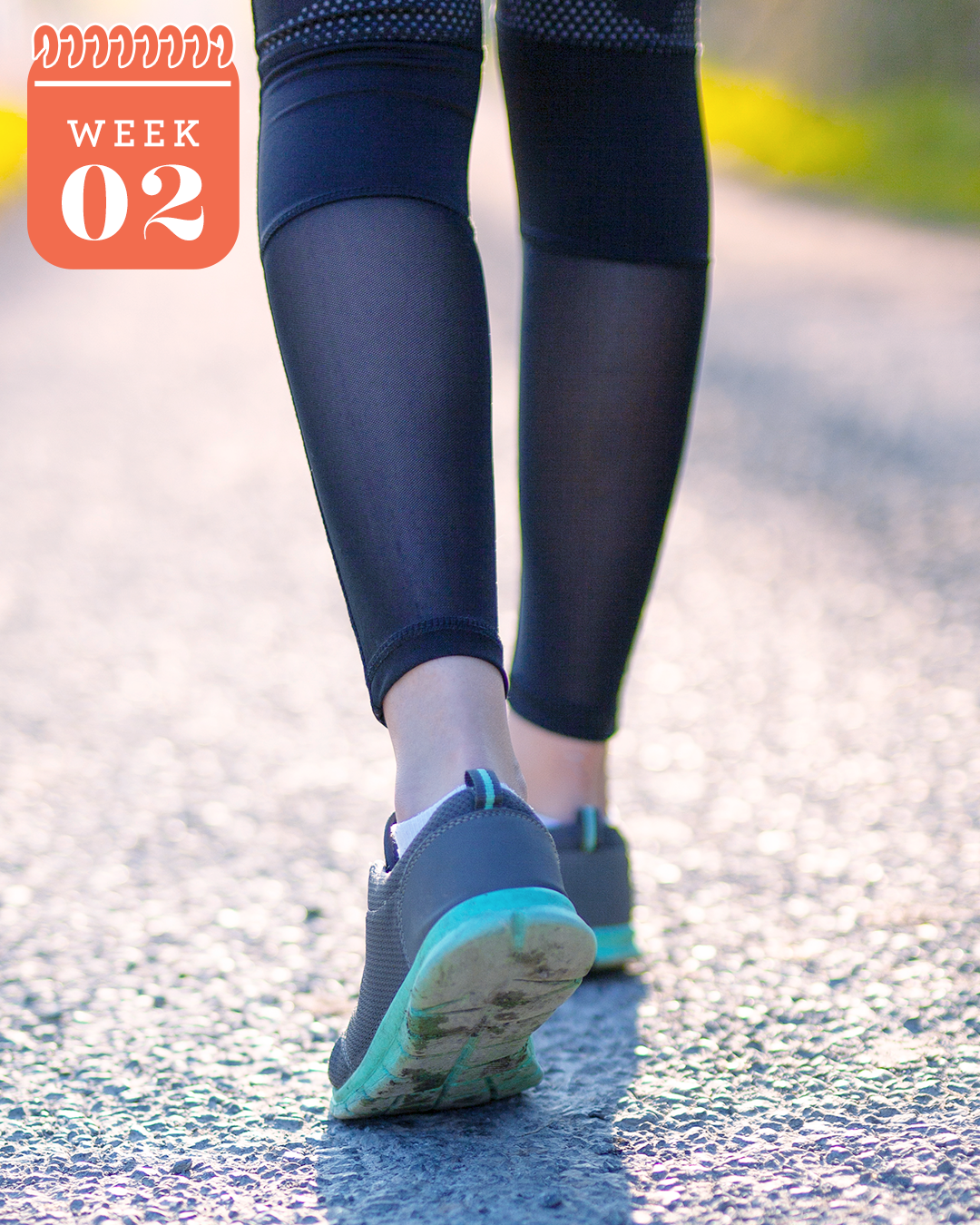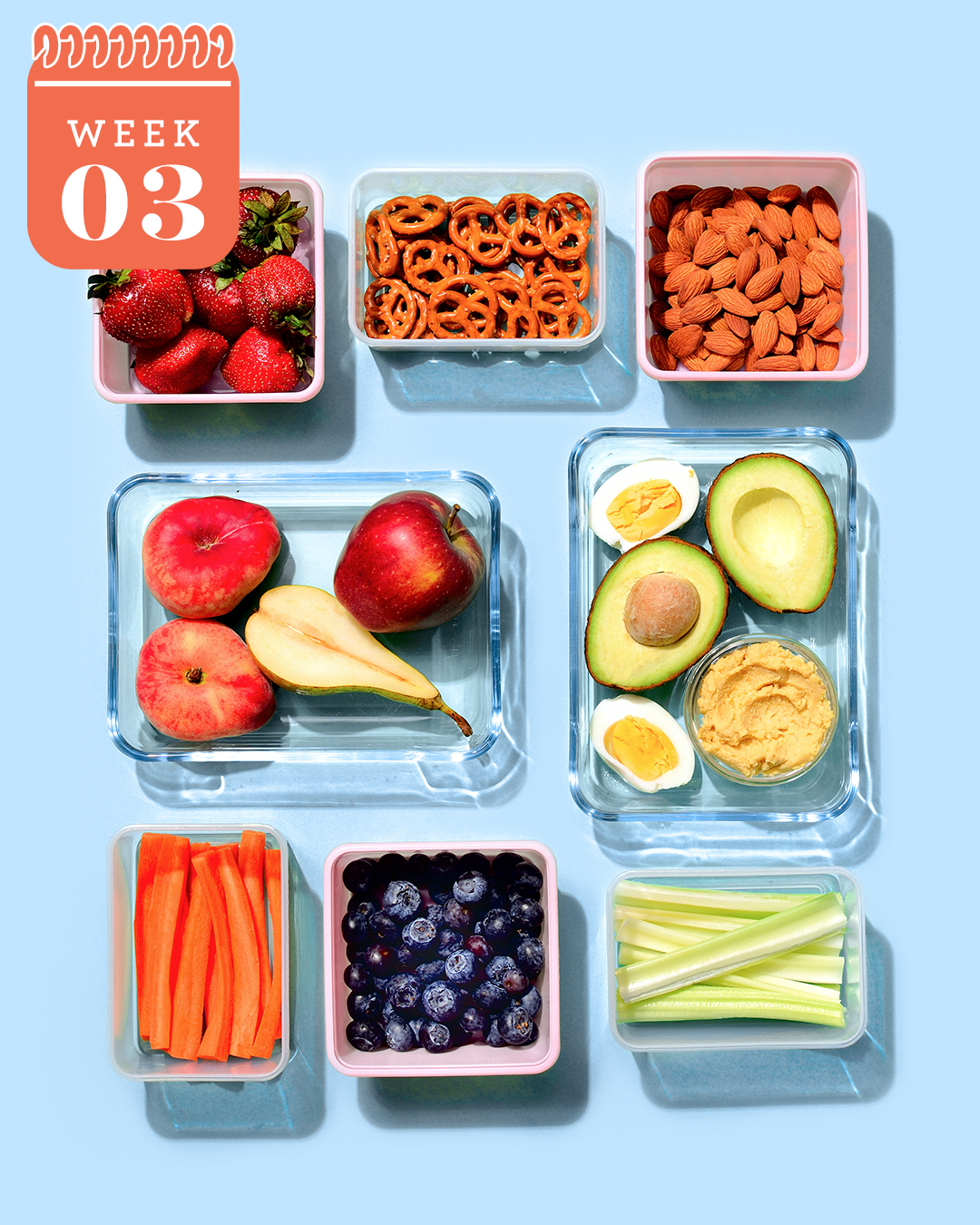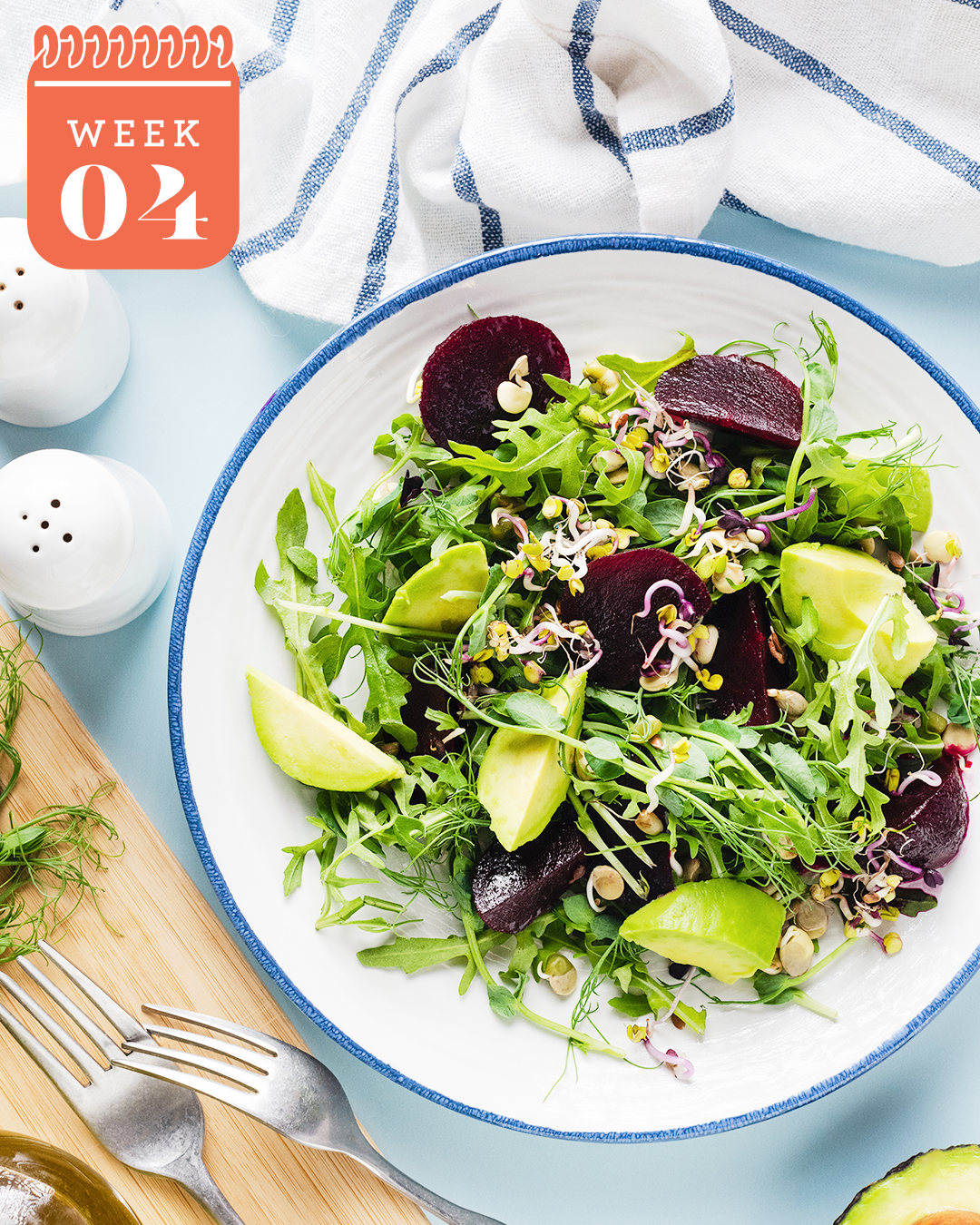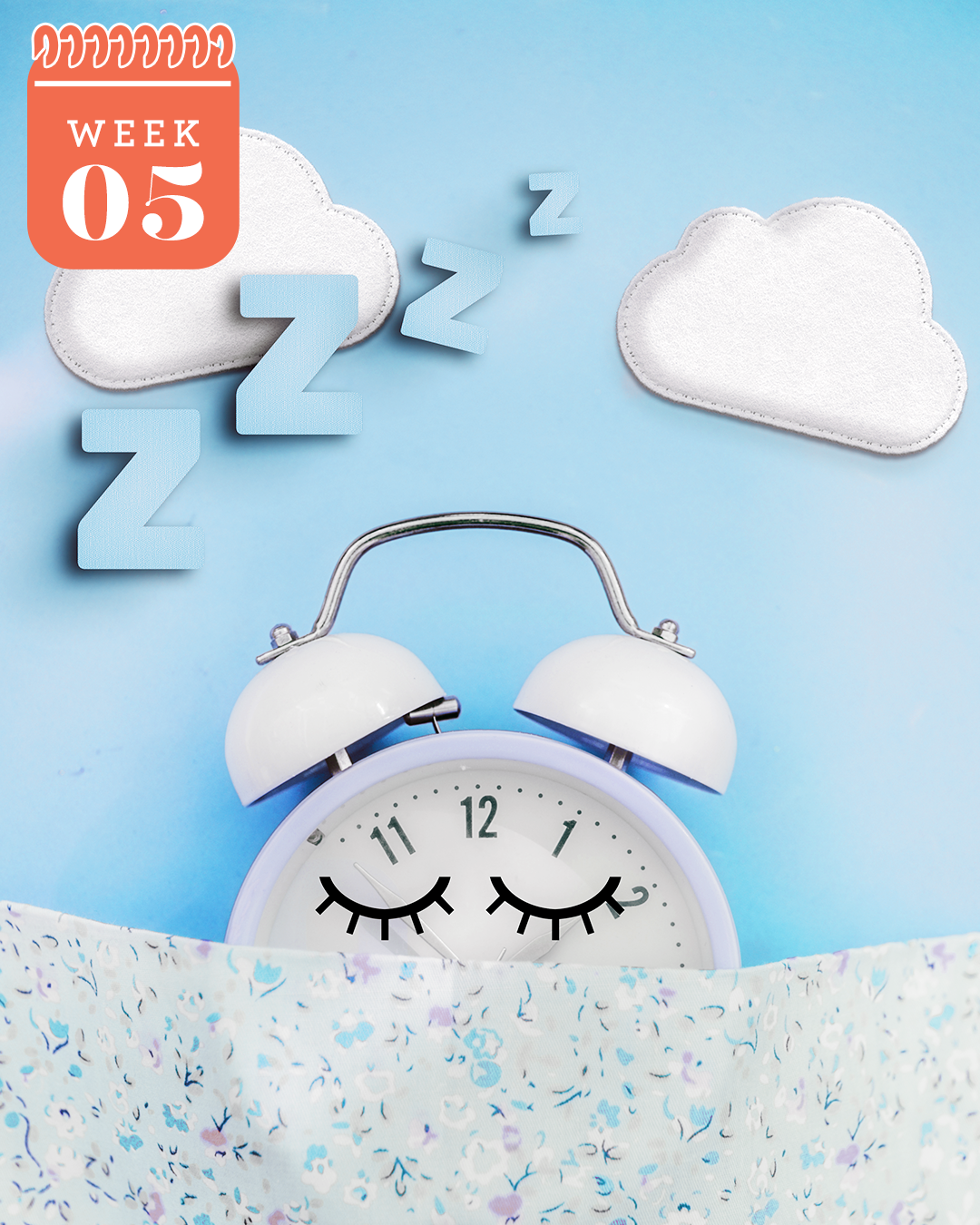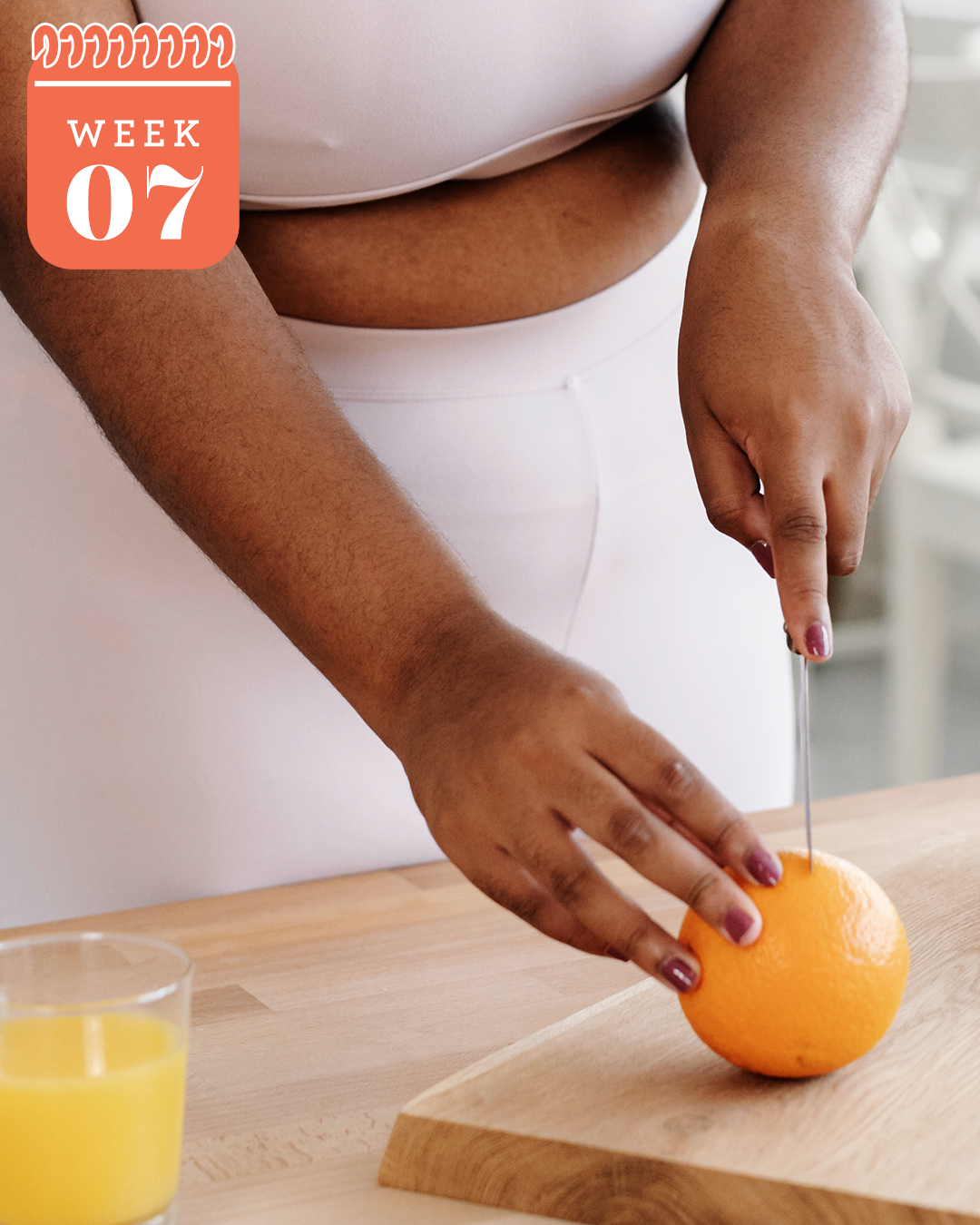Our days are made up of hundreds of habits, big and small, that affect our overall health and wellbeing. In fact, studies show that nearly 40% of our daily activities are repeated every day. Many of us can get caught up in setting lofty goals for the future, but it’s our recurring rituals and behaviors that add up quickly to set the foundation for success in all aspects of life.
Breaking bad habits and building upon healthy ones involves cultivating small daily decisions for personal growth. What’s more, it involves raising our standards for ourselves and backing up those standards with true positive change and action. Research shows that consistent healthy habits can promote longevity and reduce the risk of several chronic diseases.
Healthy habits aren’t just limited to weight management — in fact, the best healthy habits are meant to help us feel our best from the inside out and promote a long, happy life. In this eight-week program, we’ll tackle a new habit each week and talk about building a foundation for success when it comes to your personal health and wellness. Every week has a distinct theme that will focus on mastering that particular healthy habit, with tips on habit stacking (more on that later) and staying consistent with these habits over the long run. We’ll layer in a new habit each week to help you gradually establish a sustainable healthy living routine. We’ll incorporate meal and recipe suggestions, tips for prioritizing sleep and hydration and for staying motivated to keep your health a top priority — plus, weight management guidance for those interested.
Before we dive into the plan created by our team of health and nutrition experts, it’s important to understand how habits work. Knowing more about the inner working of habits can help facilitate positive change and aid in breaking certain bad habits that aren’t supporting your overall health and wellness.
What are habits?
“Habits are learned behaviors that repeat when paired with a certain contextual cue,” says licensed clinical psychologist Laura Athey-Lloyd, Psy.D., owner of Reflection Psychological Services in New York. “Some habits are so automatic that we are hardly conscious of them, such as buckling our seatbelt when we sit down in the car. Other habits are more complex and take up more time, such as meal prepping or journaling.”
Dr. Athey-Lloyd adds that a habit is formed and maintained by a cycle of antecedents (also known as cues or triggers) and reinforcements. “Positive reinforcement can take the form of a feeling (such as pride), a physiological response (such as energy) or social feedback (such as compliments).” Think for a moment about what reinforcements are happening in your own life to support your habits, good or bad.
Not all habits are ideal, and Dr. Athey-Lloyd adds that bad habits are also maintained by reinforcement. An example of this would be how biting nails may temporarily relieve a person of anxiety. “The key word here is temporarily, because the reinforcement gained by a bad habit is often short-lived, followed quickly by shame about engaging in a habit to which we assign a negative value.” She adds that the reason why bad habits are so difficult to break is because that shame can cycle right back into engaging in the habit again.
How can we change our habits?
Bad or negative habits include excessive drinking, overeating, smoking, sedentary lifestyles and more. Many bad habits can seem very hard to break, especially ones that we have been doing for an extended period of time. But just like positive habits, many negative habits are learned over time — the good news is that they can be replaced with something positive. It’s possible to form and maintain new healthy habits, but it definitely takes hard work and determination.
“A new habit may take about two months to become truly routine — a 2009 study published in the European Journal of Social Psychology found that habits take an average of 66 days to form,” Dr. Athey-Lloyd explains. “Highly organized people may build habits more quickly than others, and more complex habits take longer to build than simpler ones.”
When it comes to changing our habits, Dr. Athey-Lloyd stresses the importance of setting a start date. “Designating a start date can be helpful, both to organize when to begin the habit, and to permit time to say goodbye to existing habits that we might be replacing,” she says. It’s important to remember that these changes won’t happen overnight and realistic timelines that push you but aren’t impossible are crucial.
In order to follow through with your new healthy habits, Dr. Athey-Lloyd recommends following four laws of behavior change, suggested by James Clear, author of Atomic Habits.
Make your new habit:
- Obvious
- Attractive
- Easy
- Satisfying
“For example, if you want to run more, lay out your running clothes in a visible place (obvious), pick a route or destination you enjoy (attractive), start with 1 mile (easy), and reward yourself afterward (satisfying).” We’ll provide tangible examples of these four laws of behavior change every week in relation to the habit we’re tackling.
How do I stick to a healthy habit?
Some new healthy habits can seem daunting, but Dr. Athey-Lloyd says that it’s important to break down large goals into achievable short-term goals. “When clients come to me with their New Year’s resolutions, I encourage them instead to make a January resolution (and later on a February resolution, and so forth). Then we identify and communicate with an accountability buddy (therapists count, too!) to check in on and actively reinforce the habit.”
Habit stacking can also help, which involves stacking your new behavior on top of a current habit that you do every day. “Pairing the new habit at the same time of day as existing routines can help as a daily reminder,” Dr. Athey-Lloyd adds. “Use a calendar or habit tracker app to acknowledge your hard work, and challenge yourself to keep the streak going.”
Now that you know all about how habits work and form (and break!), let’s dive into our first week of this eight-week program. Each week, we’ll explain to you why the habit is so important to help provide some incentive to start and maintain the change. We’ll provide instructions on how to do it and tips for sticking with it too.
Cheers to you and putting your health first! And don’t forget to send a friend the GH+ club sign-up link and a message that says, “Let’s do it together!”
Nutrition Lab Deputy Director
Stefani (she/her) is a registered dietitian, a NASM-certified personal trainer and the deputy director of the Good Housekeeping Institute Nutrition Lab, where she handles all nutrition-related content, testing and evaluation. She holds a bachelor’s degree in nutritional sciences from Pennsylvania State University and a master’s degree in clinical nutrition from NYU. She is also Good Housekeeping’s on-staff fitness and exercise expert. Stefani is dedicated to providing readers with evidence-based content to encourage informed food choices and healthy living. She is an avid CrossFitter and a passionate home cook who loves spending time with her big fit Greek family.
Contributing Writer
Amy (she/her) is a registered dietitian with the Nutrition Lab at the Good Housekeeping Institute, covering nutrition- and health-related content and product testing. She holds a bachelor’s degree in journalism from Miami University of Ohio and a master’s degree in clinical nutrition from NYU. Prior to Good Housekeeping, she worked at one of the largest teaching hospitals in New York City as a cardiac transplant dietitian. She has authored numerous chapters in clinical nutrition textbooks and has also worked in PR and marketing for food company start-ups.
This content is imported from OpenWeb. You may be able to find the same content in another format, or you may be able to find more information, at their web site.


